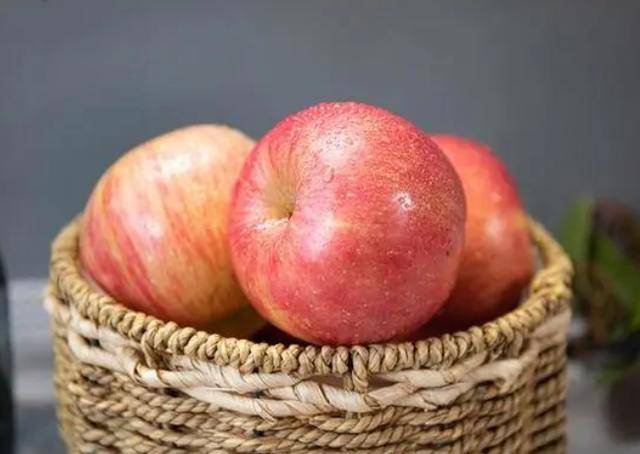Diabetes is a common chronic disease characterized by elevated blood sugar levels. For diabetes patients, dietary regulation is a key factor in controlling blood sugar.
Among many fruits, apples are loved for their abundant nutrients and crisp sweetness. So, do apples raise or lower blood sugar levels for diabetic individuals? This article will delve into this issue and provide scientific dietary advice for diabetes patients.
Analysis of Apple Components and Nutritional Value
Apples are a common fruit. Data shows that 100g of apples contain 13.7g of carbohydrates, 1.7g of dietary fiber, as well as various vitamins such as vitamin A, vitamin E, niacin, pantothenic acid, vitamin C, and minerals like sodium, potassium, calcium, phosphorus, magnesium, and chlorine.
In addition, apples also contain small amounts of fat and protein. Moderate consumption of apples can effectively supplement the body with necessary nutrients, promoting overall health.
Do apples raise or lower blood sugar for diabetic individuals? Let’s find out early and avoid any misconceptions.
The consumption of foods with a low glycemic index is recommended for diabetic patients. Foods with a glycemic index below 55 indicate low blood sugar production, and apples have a glycemic index of only 36.
The sweetness of apples is mainly due to their soluble sugar content, accounting for about 10%. Among fructose, glucose, and sucrose, fructose is the sweetest. Coupled with the organic acids present in apples, they offer a sweet yet slightly acidic taste.
Eating apples can provide numerous benefits, such as fighting fatigue, aiding in stabilizing blood sugar for better food digestion and absorption, boosting immunity, delaying aging, and making a satisfying snack option. An average-sized apple contains about 100 calories, roughly equivalent to a small bowl of rice, making apples a suitable snack food.
Can diabetic patients eat apples? Pay attention to these 4 points to enjoy delicious apples properly.
1. Selecting Apples: Choose apples that are not overly sweet and have a crisp texture, such as green apples, which are slightly sour but more suitable for diabetic individuals.
2. Avoid Peeling: Apple skin contains rich dietary fiber. Removing the skin reduces fiber intake, resulting in a higher glycemic index. Diabetic patients are advised not to peel apples while consuming them.
3. Do Not Eat Apple Seeds: Apple seeds contain toxic compounds like hydrogen cyanide, which can lead to poisoning if consumed in excess.
4. Pairing with Other Foods: When eating apples, diabetic patients can pair them with whole wheat bread, lean meat, vegetables, etc. to increase satiety, reduce food intake, and aid in blood sugar control.
6 Sweet Fruits Suitable for Diabetic Patients
1. Blueberries: Known as a “superfood” for their high content of vitamins, minerals, antioxidants, and fiber, blueberries are an ideal choice for diabetic patients. Their low sugar and high fiber content help stabilize blood sugar levels and improve insulin sensitivity.
2. Cherries: With a glycemic index of only 22, cherries are sweet but do not significantly raise blood sugar levels for diabetic individuals. Cherries also contain beneficial nutrients like vitamin C, E, anthocyanins, which can help prevent cardiovascular diseases and maintain heart health.
3. Grapefruit: Despite its sour appearance, grapefruit is rich in vitamin C, fiber, and nutrients that can help lower cholesterol and blood sugar levels. It offers a satisfying taste while benefiting your health.
4. Kiwi: Kiwi is relatively low in sugar, providing Vitamin C, bioflavonoids, B vitamins, calcium, phosphorus, and potassium. Diabetic patients can consume 1-2 kiwis a day to supplement nutrition and maintain health.
5. Watermelon: Watermelon is beneficial for diabetic patients with potential kidney functions protection and prevention of cardiovascular diseases. While it has a high glycemic index, moderation is key in consumption.
6. Pomegranate: Pomegranate, a colorful and sweet fruit, is considered a “blessing” for diabetic patients. It has lower sugar content, is rich in Vitamin C, dietary fiber, and can help regulate blood sugar levels and promote overall health.
Further Reading: How Much Fruit Can Diabetic Patients Eat Daily?
Considering the need for blood sugar control in diabetic patients, it is generally recommended that they consume 100-200 grams of fruits per day. Fruits are valuable for health and cannot be entirely replaced by vegetables. The Chinese Residents’ Dietary Guidelines suggest that adults consume 200-400 grams of fruit daily. While fruits contain sugar, there is no evidence to suggest that fruit sugar is harmful to diabetic patients.


